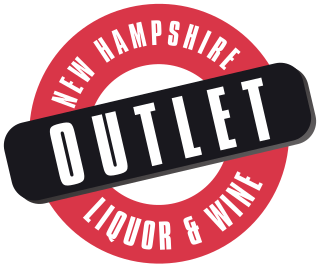Related Research Articles

In the United States, the removal of cannabis from Schedule I of the Controlled Substances Act, the category reserved for drugs that have "no currently accepted medical use", is a proposed legal and administrative change in cannabis-related law at the federal level. After being proposed repeatedly since 1972, in 2024, the U.S. Department of Justice announced it was initiating rulemaking to reschedule cannabis to Schedule III of the Controlled Substances Act.

The Oregon Liquor and Cannabis Commission (OLCC), formerly known as the Oregon Liquor Control Commission, is a government agency of the U.S. state of Oregon. The OLCC was created by an act of the Oregon Legislative Assembly in 1933, days after the repeal of prohibition, as a means of providing control over the distribution, sales and consumption of alcoholic beverages. To this end, the agency was given the authority to regulate and license those who manufacture, sell or serve alcohol.
The BC Liquor Distribution Branch (BCLDB) is the governmental body responsible for distributing alcohol and cannabis products in the province of British Columbia, Canada. The BCLDB operates under the Ministry of Finance and was established in 1921. The BCLDB head office is located in Burnaby, with distribution centres in Delta and Kamloops.
An open-container law is a law which regulates or prohibits drinking alcohol in public by limiting the existence of open alcoholic beverage containers in certain areas, as well as the active consumption of alcohol in those areas. "Public places" in this context refers to openly public places such as sidewalks, parks and vehicles. It does not include nominally private spaces which are open to the public, such as bars, restaurants and stadiums.

Alcoholic beverage control states, generally called control states, less often ABC states, are 17 states in the United States that have state monopoly over the wholesaling or retailing of some or all categories of alcoholic beverages, such as beer, wine, and distilled spirits.

The Texas Alcoholic Beverage Commission, or TABC, is a Texas public agency responsible for regulating, inspecting, and taxing the production, sale, and use of alcoholic beverages within the state. The agency was established in 1935 and is headquartered in Austin.
Alcoholic Beverage Control or Alcoholic Beverage Commission (ABC), or variants thereof, typically refer to a U.S. state's regulatory control over the wholesaling or retailing of some or all categories of alcoholic beverages. In alcoholic beverage control states, the state has a monopoly over some or all such sales. Examples of state agencies that oversee such arrangements include:

The California Department of Alcoholic Beverage Control (ABC) is a government agency of the state of California that regulates the manufacture, distribution, and sale of alcoholic beverages.

The Alberta Gaming, Liquor and Cannabis Commission (AGLC) is an agency of the government of the Canadian province of Alberta, and regulates alcoholic beverages, recreational cannabis, and gaming-related activities. References to cannabis were added to AGLC's name and governing legislation as cannabis in Canada moved towards legalization in 2018. AGLC was created in 1996 as the Alberta Gaming and Liquor Commission by combining the responsibilities and operations of the Alberta Liquor Control Board (ALCB), Alberta Lotteries, the Alberta Gaming Commission, Alberta Lotteries and Gaming and the Gaming Control Branch. The current Chief Executive Officer as of 2020 is Kandice Machado.

The New Hampshire Liquor Commission (NHLC) is a government agency of the U.S. state of New Hampshire. The commission regulates the sale of alcoholic beverages in New Hampshire, one of 17 alcoholic beverage control states.
The Washington State Liquor and Cannabis Board, formerly the Washington State Liquor Control Board, is an administrative agency of the State of Washington. The Liquor and Cannabis Board is part of the executive branch and reports to the Governor. The board's primary function is the licensing of on and off premises establishments which sell any type of alcohol, and the enforcement and education of the state's alcohol, tobacco, and cannabis laws.

The California State Board of Equalization (BOE) is a public agency charged with tax administration and fee collection in the state of California in the United States. The authorities of the Board attempt to ensure that counties fairly assess property taxes, collect excises taxes on alcoholic beverages, administer the insurance tax program, and other tax collection related activities.
ABCA may refer to:

A liquor license is a governmentally issued permit for businesses to sell, manufacture, store, or otherwise use alcoholic beverages.

The District of Columbia has a mayor–council government that operates under Article One of the United States Constitution and the District of Columbia Home Rule Act. The Home Rule Act devolves certain powers of the United States Congress to the local government, which consists of a mayor and a 13-member council. However, Congress retains the right to review and overturn laws created by the council and intervene in local affairs.

The New York State Executive Department of the New York state government serves as the administrative department of the Governor of New York. This department has no central operating structure; it consists of a number of divisions, offices, boards, commissions, councils, and other independent agencies that provide policy advice and assistance to the governor and conduct activities according to statute or executive order. Its regulations are compiled in title 9 of the New York Codes, Rules and Regulations.

Edward H. Thomson III is an American Republican Party politician who represented the 30th Legislative District in the New Jersey General Assembly from August 24, 2017 to January 9, 2024. He replaced Dave Rible, who left office to serve as Director of the New Jersey Division of Alcoholic Beverage Control. Thomson had previously served as mayor of Wall Township. He has served since 2022 as the Minority Conference Leader in the General Assembly.
References
- 1 2 "Code of the District of Columbia: Chapter 2. Alcoholic Beverage and Cannabis Administration". dccouncil.gov. Retrieved July 17, 2024.
- ↑ "Fred Moosally". abca.dc.gov. Retrieved July 17, 2024.